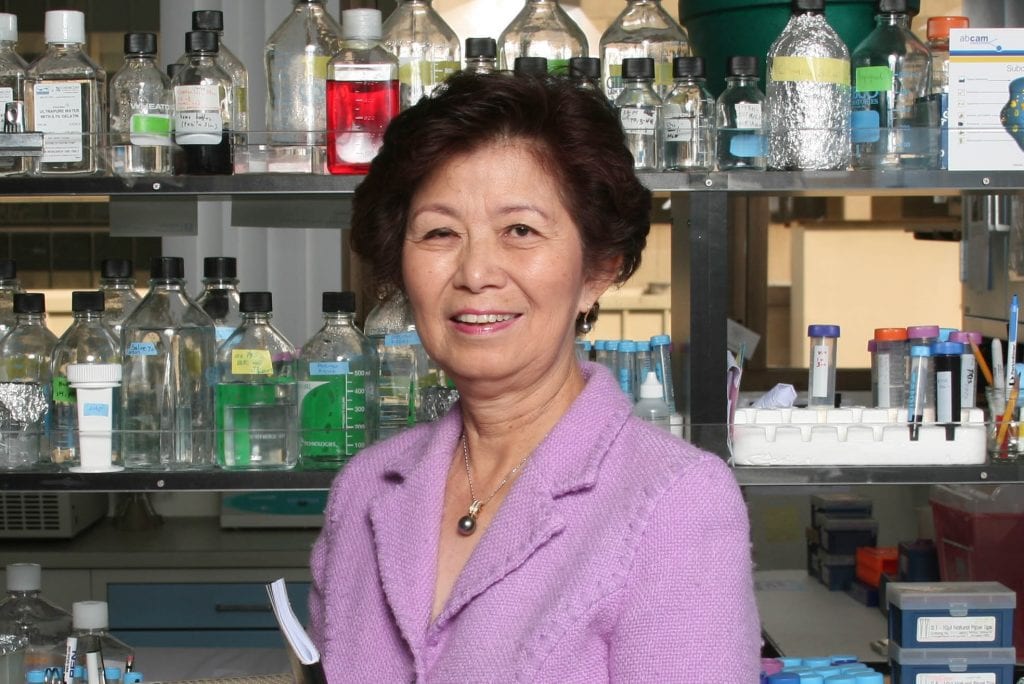A new USC School of Pharmacy study led by University Professor Jean Chen Shih offers new evidence that the monoamine oxidase-A enzyme (MAO-A) pathway could be an important target in prostate cancer.
Pioneering work previously conducted by Shih revealed the role the MAO-A gene plays in depression and other mental illnesses, as well as autism and aggression.
Research has shown increased MAO-A expression in prostate cancer, glioma and classical Hodgkin lymphoma. Yet the biological function of MAO-A in cancer development remained unknown — until now.
In a study published earlier this month in Oncogene, Shih and her co-investigators examined the role MAO-A plays in the progression of prostate cancer. They crossed an MAO-A knockout mouse with a conditional Pten knockout mouse that possessed a similar genetic defect to human prostate cancer patients. The MAO-A gene expression was inhibited in the resulting (Pten)/MAO-A double knockout mouse model. Knocking out a gene’s expression offers valuable insights into how that gene functions.
The findings show that inhibition of MAO-A expression reduces prostate cancer development by decreasing cell proliferation (Fig. 1) and cancer stem cells (Fig. 2).
Because MAO-A inhibitors are successfully being used to treat other diseases linked to this enzyme, such as depression, Shih and her collaborators believe the right inhibitors also hold the potential to reduce prostate cancer growth.
“We’ve found MAO is increased in prostate cancer, glioma and lymphoma. In these cancers, we think the patient may benefit by treatment with MAO inhibitors,” explains Shih, who holds the Boyd P. and Elsie D. Welin Professorship in Pharmaceutical Sciences, and serves as Director of the USC-Taiwan Center for Translational Research. “We are eager to pursue preclinical and clinical studies.”
Treating prostate cancer with antidepressants
According to the American Cancer Society, more than 29,000 deaths from prostate cancer will occur in 2018, putting the disease just behind lung cancer as the leading cause of cancer death in American men. One in nine men will be diagnosed with prostate cancer during his lifetime.
“The results of this study are significant as they suggest that the MAO-A pathway is an important target in prostate cancer,” says study co-author Mitchell Gross of the Keck School of Medicine. “This is especially exciting because MAO inhibitors are already FDA-approved and available to treat depression.”
The results are being tested now in human clinical trials as prostate cancer patients receive treatment with MAO inhibitors (phenelzine sulfate). “The preliminary data are promising,” Shih notes.
Funding for the research was provided by the Department of Defense Prostate Cancer Research Program grant W81XWH-12-1-0282 and the Daniel Tsai Family Fund.




